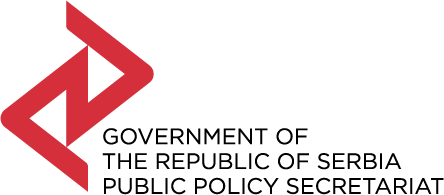The Government of the Republic of Serbia adopted the Economic Reform Programme (ERP) for the period 2024-2026 on December 28, 2023, and submitted the translated document to the European Commission within the specified deadline.
The ERP document, in its tenth cycle of development, outlines the mid-term framework for macroeconomic, fiscal, and monetary policies, along with a detailed presentation of structural reforms aimed at enhancing the competitiveness of the national economy, promoting economic growth and development, creating new jobs, and improving the living conditions of the citizens of the Republic of Serbia in the next three years.
The strong connection between the macroeconomic and fiscal framework and structural reform measures is crucial for the comprehensiveness, coherence, and credibility of the programme. Consequently, all reform measures included in the ERP provide details on their estimated costs and sources of financing, while the implementation of identified reforms is significant not only for improving competitiveness, fostering new employment opportunities, and facilitating social inclusion but also for meeting the economic criteria in the process of accession to the European Union.
The Economic Reform Programme for the period 2024-2026, in line with this year’s EC Guidelines, focuses on a narrower set of structural reforms compared to previous cycles, prioritizing the realization of established priorities. Accordingly, the number of structural reforms is limited to six, with two in each area: Competitiveness, Sustainability and resilience, and Human capital and social policies.
The structural reforms outlined in the document aim to improve conditions for further growth in Serbia’s external trade, enhance the competitiveness of all market players in Serbia, including state-owned enterprises, and create a knowledge-based economy that will facilitate the development and placement of innovative products and services competitive in the global market. The programme also envisions efforts to improve energy efficiency and transform energy production by transitioning from fossil fuels to renewable energy sources, contributing to Serbia’s “green” energy transition and addressing market issues in transportation services while reducing harmful gas emissions through increased availability and attractiveness of public transportation services for passengers and/or goods by road and rail. Additionally, the programme includes measures related to increasing the relevance of the education system through practical learning, ensuring a more effective response of the education system to the needs of the economy and employability, and improving the position of young people in the labor market by facilitating their transition from education to the workforce.
As a reminder, the coordination process of economic policies, within which the Republic of Serbia, as a candidate country for EU membership, annually develops the ERP for the upcoming three-year period, represents the highest level of cooperation between the Western Balkans, Turkey, and the European Union concerning socio-economic issues.
The Ministry of Finance, the Public Policy Secreteriat, the National Bank of Serbia, and members of the stakeholder Working Group for the development and monitoring of the ERP are involved in the creation of the document, with consultations with representatives of civil society taking place during the drafting process.

